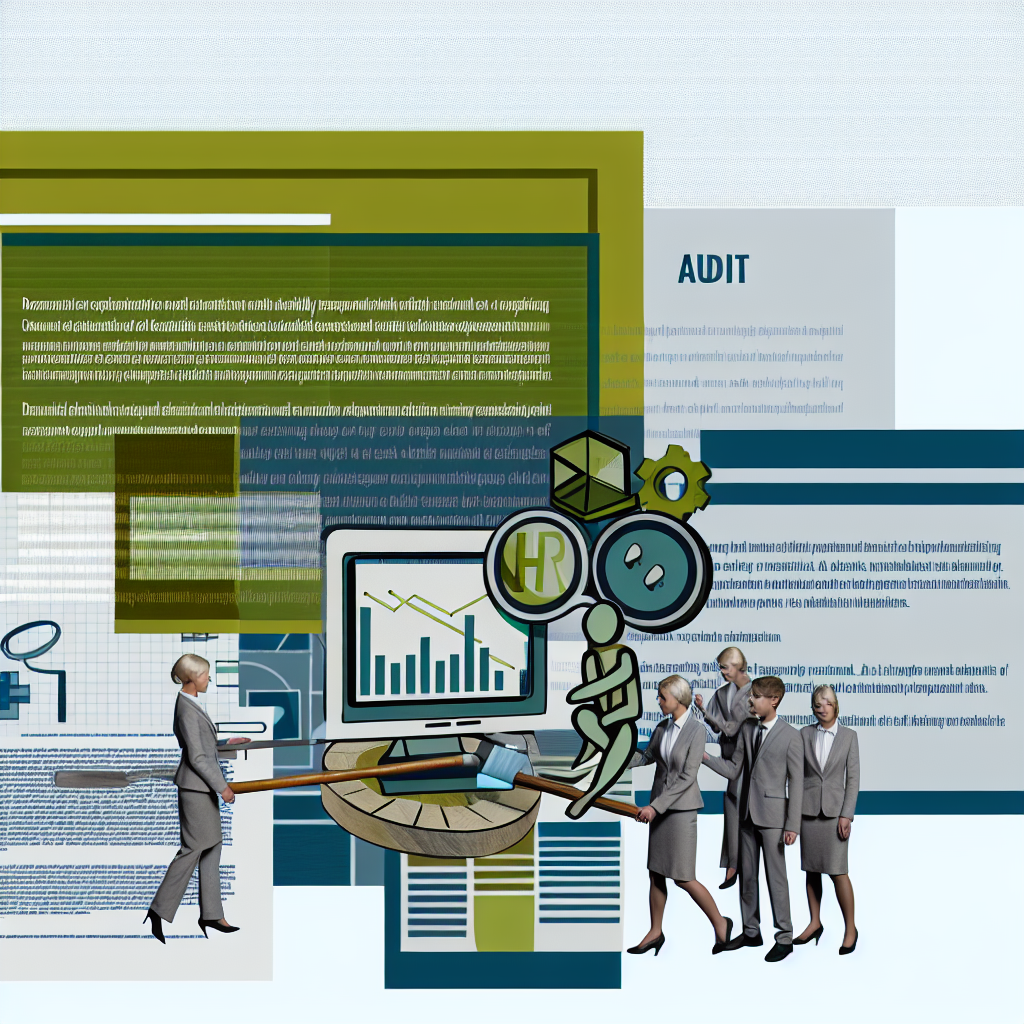
Conducting an HR audit is an integral practice for any organisation striving for operational excellence. A systematic review of the human resource policies, procedures, and practices helps organisations identify areas for enhancement, ensure compliance with laws and regulations, and align HR operations with strategic goals. This blog delves into the significance of HR audit tools, current trends, and key benefits, offering HR professionals insights to improve their functions effectively.
The Importance of HR Audit Tools
HR audit tools play a crucial role in assessing the effectiveness and compliance of an organisation’s HR functions. These resources highlight gaps in HR practices, ensuring adherence to employment laws and boosting employee satisfaction and engagement. Proactive identification and resolution of non-compliance issues through regular HR audits can help organisations avert legal disputes and reputational damage.
Current Trends in HR Auditing
As the HR landscape continues to evolve, certain trends have shaped the approach to auditing HR functions. These trends include:
- Compliance with Employment Laws: HR audit tools are essential for evaluating whether HR practices align with current employment legislation, encompassing policies on hiring, performance management, and employee termination.
- Employee Satisfaction and Engagement: Many audits gather feedback from employees through surveys and questionnaires, thus assessing their satisfaction with various HR processes.
- Strategic Planning: The integration of HR audit tools aids in evaluating the alignment of HR practices with the organisation’s strategic objectives, assessing the impact of modifications on employment practices.
- Data-Driven Insights: Modern HR audit tools provide insights based on data analysis, enhancing decision-making regarding talent acquisition and employee development.
Key Benefits of HR Audit Tools
The implementation of HR audit tools offers numerous advantages:
- Identifying Areas for Improvement: These tools reveal deficiencies in HR processes and policies, such as outdated procedures or ineffective training programmes.
- Ensuring Compliance: Organisations can protect themselves from legal pitfalls by identifying non-compliance issues, adhering to labour laws, and maintaining industry standards.
- Enhancing Employee Satisfaction and Engagement: Addressing identified employee challenges fosters a supportive and engaging workplace environment.
- Optimising Resource Allocation: HR audit tools identify inefficiencies and redundancies, enabling HR teams to focus on strategic initiatives.
- Improving Decision-Making: Data-driven insights from audit tools enhance the decision-making process regarding various HR operations.
A Comprehensive Checklist for Conducting an HR Audit
When embarking on an HR audit, it’s vital to evaluate several key areas to ensure all aspects of HR operations are covered:
1. Employee Records
- Verify the functionality of the HR Information System (HRIS).
- Ensure the accuracy of I-9 forms and personnel files.
- Maintain strict confidentiality of sensitive employee information, distinguishing it from other records.
2. Employee Handbook
- Check that the handbook complies with relevant national, state, and local employment laws.
- Conduct annual reviews to confirm that no updates, mistakes, or essential changes are overlooked.
- Inform employees of any modifications and obtain their acknowledgment for record-keeping.
3. Hiring and Onboarding Process
- Evaluate the Applicant Tracking System (ATS) for its effectiveness.
- Assess the recruitment tools implemented within the organisation.
- Consider creating a buddy or mentoring system for newcomers to enhance their onboarding experience.
4. Compensation
- Consult national pay scales to evaluate competitiveness in salary packages.
- Identify any discrepancies in pay based on gender, race, disability, etc.
- Establish a transparent system for salary reviews and adjustments in accordance with governing laws.
5. Performance Evaluations
- Assess whether the performance appraisal tools meet the organisation’s needs.
- Determine an appropriate period for assessing performance and a clear system for promotions and reviews.
- Watch for any biases potentially influencing the appraisal process.
6. Benefits Package
- Consider updating the employee benefits package to stay competitive.
- Ensure effective communication regarding any changes to employees so they understand their benefits fully.
Conclusion
In summary, the utilisation of HR audit tools is vital for maintaining compliance, enhancing efficiency, and fostering employee satisfaction within organisations. By regularly conducting HR audits and employing tailored tools, businesses can streamline their human resource functions, mitigate legal risks, and synchronise HR activities with their strategic objectives. The importance of these tools lies in their capacity to provide insights and actionable recommendations, crucial for making informed decisions regarding HR operations.
Investing in effective HR audit tools will lead your organisation towards improved performance and competitiveness. For more detailed insights on conducting an HR audit, check out these sources:
- SHRM: Conducting Human Resource Audits
- Peninsula Group: What is the Purpose of an HR Audit?
- Vantage Circle: Defining HR Audit, its Purpose, Types, & The Checklist
- Merritt Business Solutions: How an HR Audit Can Boost Efficiency and Ensure Compliance
- Shiftbase: Understanding HR Audits and Their Impact
By leveraging the insights gained from this audit process, your HR department can operate at its highest potential, directly supporting your organisation’s goals and fostering a vibrant workplace culture.
Vadim Kouznetsov is a distinguished entrepreneur and the visionary founder and CEO of JobXDubai.com, the UAE’s rapidly expanding job board. Renowned for his expertise in bridging the gap between job seekers and employment opportunities, Vadim has become a leading authority in the recruitment and job market of Dubai.
